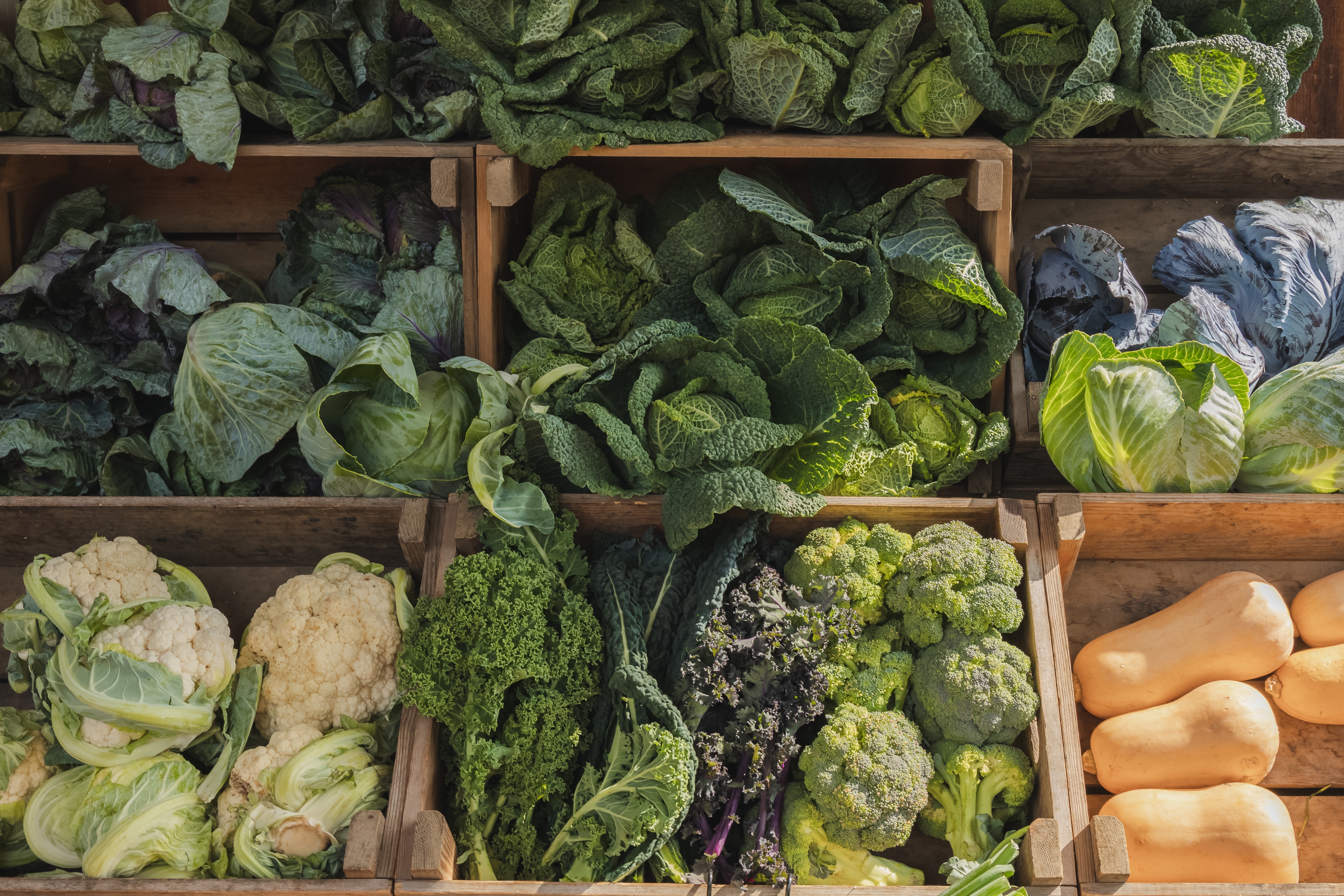Free digital copy
Get Speciality Food magazine delivered to your inbox FREE
Get your free copy
It’s not for nothing that some of Scotland’s most famous exports are food and drink products. Haggis and whisky, to name just two, are not only revered in their domestic market but around the world too – and with good reason. Scottish producers take their roles seriously, at once showcasing time-honoured techniques and skills and respectfully innovating for the modern food sector.
Of course, the country’s iconic landscape has a part to play as well – it is home to raw ingredients of naturally superb quality, farmed and raised with expertise and passion. “We’re an island so we have amazing fish, and incredible farmland and grass hills for miles so we have great meat, barley and vegetables. The food our primary producers are creating is fantastic,” begins Nikki Storrar of Ardross Farm Shop, located on the East Neuk of Fife.
“The classics are few and obvious. Scottish produce has long been enjoyed globally with the romantic view of misty glens and mountains adding to its international appeal,” says Will Docker, co-owner of Balgove Larder, a retail site based on a working farm just outside St Andrews. “However, these products stand high and alone – they’re incredible and really do stand up to scrutiny.”
“I could point to the rising stars of soft fruit and market garden production here alongside the obvious longstanding winners of traditional breed, extensively farmed livestock. The seashores remain abundant, and there’s plenty of wild land that produces incredible foraged ingredients like mushrooms. Importantly there’s also a thriving cottage industry that is still able to harvest and harness this outstanding produce.”
Scottish producers’ support of traditional breeds and practices is key to its success. “Scottish produce is world renowned and when you drill into it, we really do have the best ingredients in the world, supported by traditional breeds and practices,” continues Will. “We simply invigorate these at Balgrove Larder: from old-fashioned (now called organic and regenerative) farming to showcasing the traditional breeds that thrive in the areas in which they were designed to live.”
At both Ardross and Balgove Larder, stocking in line with the seasons is a no-brainer. “Seasonality brings huge interest and exciting challenges to our kitchens and customers where we celebrate the advent of new crops and harvests – as opposed to the monotony of year-round availability,” says Will. “In Scotland our shorter seasons and hardier crops really focus our attention on seasonality more than you might find elsewhere.”
For Colin Campbell, communications director at Bonnie & Wild, a food hall based in Edinburgh, Scottish food and drink boils down to three key elements that have driven its success: “commitment to quality, rooted in our landscape, and rich in story”.
The team behind Bonnie & Wild is proud and excited to be a hub for Scottish food and drink. “Its quality and diversity, and the people behind it, are what excites me about our food scene,” says Colin. “We’ve such a mix of food cultures and that’s led to a very wholesome marriage of innovation and tradition.
“Stocking Scottish produce is at the core of what we do and who we are. We believe in championing Scottish produce, products and culture, and are passionate about working closely with our suppliers. All the kitchens and retailers are independent operators, all small Scottish businesses. Most of the products (more than 90%) sold from our bars, shops and kitchens is grown, farmed, harvested, caught, baked, pickled, smoked, produced, roasted, bottled, cured, distilled, brewed and made in Scotland.”
It goes further, with the site also a popular hub for wider Scottish culture. “We also host a regular monthly ceilidh showcasing traditional Scottish music and dancing, as well as regular events with key partners and local businesses and organisations and of course regular whisky tastings and so on,” he says.

Hilary Barney, co-owner of The Cheesery in Dundee, is feeling positive about the growth and innovation she’s seeing from new-to-market businesses. “It’s so exciting to see more brands developing and evolving. I love to see food and drink events from tastings to days out in the countryside enjoying, for example, Scottish seafood, our range of whiskeys or meat cooked over a fire combining our landscape with tasting experiences,” she says.
“We feel that the standard of Scottish produce is so high, and we are proud to stock it. We are always asked about our most local cheeses in the counter and a lot of the time, customers want to focus on a Scottish themed cheeseboard.” It’s not only cheese that the local area serves up in abundance. “Accompaniments from close by are always a hit with customers too. They are supporting local by coming to our shop, so the feeling that they are then supporting another small business is important to a lot of people, I think. We stock local honey, Sarah Gray chutneys and chill jam which is so popular, East Neuk oatcakes and local butter from the Strathearn Cheese Company – amongst others. Our bread supplier, GH Barnett, based in Fife is also really popular with our customers as are the local craft breweries such as Law Brewing and 71 – both based in Dundee and Abernyte Brewery who come up with new and exciting beers frequently. In terms of stocking products close to us, there is less distance for them to travel, making them more sustainable and better for the environment.”
It may be renowned around the world, but some corners of Scotland’s domestic market have been slow to appreciate the incredible food and drink on their doorstep… But this is changing. “People in Scotland are starting to take their own cuisine seriously. People are becoming more invested, more interested in enjoying high quality food and drink,” says Colin. Provenance is a key aspect of this. “They want to understand where it came from, who made it. That growing awareness has helped to create a demand for it, which Scotland’s food and drink producers have been all too willing, and capable, to rise to.”
Since opening The Cheesery nine years ago, Hilary and her partner Steve have witnessed the evolution of the cheese sector. “In that time, we have seen more Scottish cheeses come to market and more notably, soft, washed rind cheese,” she says. “Continuing creativity and ideas for products” are her hopes for the future. “We already have a good few cook schools and foodie events, but I hope there will be more experiential events for the public to enjoy in cities and rural areas – combining the fresh and sustainable products we have here in Scotland.”
The Scottish food and drink industry has evolved beyond just meeting demand for smoked salmon and whisky, says Balgove’s Will. “There are so many opportunities with the produce we have access to, coupled with demand from our domestic and international customers. With this in mind, there’s a huge amount of scope to develop how we grow and how we deliver produce to our customer – whether that’s in the home, restaurant or hotel. In our region, Fife is punching above its weight and we (alongside others in the region) have had a wonderful response to this. We hope to continue to grow this and continue to thrive.”

We caught up with Iain Baxter, CEO of Scotland Food & Drink, for his take on the future of the country’s food scene
Scotland’s food and drink scene is a natural expression of what Scots, and Scotland, are all about. It encapsulates our passion, pride and personality. From iconic produce such as whisky, salmon or beef through to rising stars like confectionery, cheese or vegetables, the provenance of Scottish produce brings together innovation with traditions that have been handed down through generations.
Despite our rich history and heritage, Scotland is also a country of modernity. We see the importance of embracing innovation to create new products that consumers across the world want to taste and we use technology to improve and enhance the way we work, market our products and speak to our customers and consumers. Our produce and products have a reputation for uncompromising quality which goes hand-in-hand with our commitment to sustainability. All this considered, the industry is definitely evolving and is showing encouraging signs of growth.
Scottish produce is celebrated for its premium quality, rich heritage, and natural origin. Our pristine environment and traditional craftsmanship create products with distinctive flavours consumers can trust, and enjoy. With a focus on authenticity, sustainability, and natural ingredients, Scottish food and drink offer something truly special.
Independent retailers can enhance Scotland’s reputation by showcasing local, authentic products, promoting sustainability, collaborating with regional producers, and sharing the stories behind these exceptional products. Outlets can also get involved in our food and drink sector brand, Naturally Scottish. The brand reflects the people and passion behind Scotland’s food and drink sector, whilst bringing a strategic edge to our industry as we take our incredible larder to the global stage.
In return, these outlets stand to benefit significantly. They can attract food enthusiasts willing to pay a premium for quality and authenticity. Tourists eager to immerse themselves in local flavours often gravitate toward delis and farm shops. By offering distinctive Scottish products, these outlets can set themselves apart from competitors and create a memorable experience for their customers.
The future for Scottish food and drink is bright, driven by innovation, sustainability, and global recognition of its premium quality. With a growth in sustainable practices, growing international demand, and a continued focus on premium and authentic products, I am confident the sector will continue to flourish.
Scotland Food & Drink as an organisation empowers these businesses to achieve their full potential to drive our economy, alongside sustaining our environment and supporting our communities. Our ambition is that we want Scotland to be the best place in the world to own, operate, and work for a food and drink business, and to be known as a world leader in sustainable production and responsible growth.